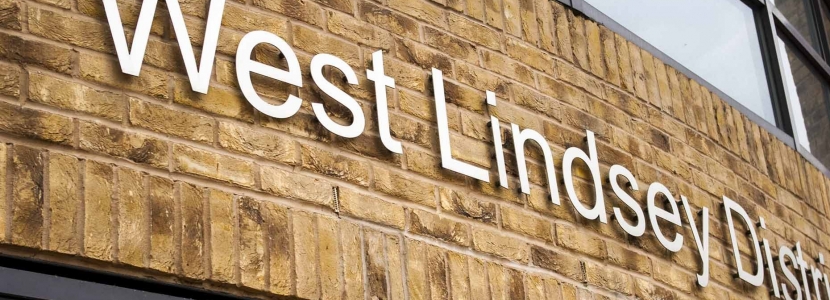
Conservative-led West Lindsey District Council has revealed an exciting capital investment plan totalling £37 million, to support its vision for the district and the people it serves.
Regeneration, leisure and business growth, feature heavily in the council’s plans over the next five years, as well as continuing to provide vital services for residents.
The news was revealed at the full council meeting on Monday, 4th March, where the Capital Investment Programme was presented to councillors as part of the council’s budget report. It outlines the ambitious work plan for the next five years, to deliver the new Corporate Plan, which was also supported by councillors.
Highlights of the plan include:
- £2.2 million for housing infrastructure.
- £1 million on roadway improvements.
- £1.1 million on Saxilby Industrial Units -providing smaller workspace units for businesses.
- £6.3 million on building the district’s first crematorium in Lea.
- £1.5 million on the Food Enterprise Zone, at Hemswell Cliff, to help unlock the potential of local food and farming businesses, boost the local economy and attract more investment.
- £5 million on the regeneration of Gainsborough through a development partner.
- £7.1 million on leisure facilities across the district, which includes the new dry leisure facility in Market Rasen and an outreach facility across the district.
Cllr. Jeff Summers, Conservative Leader of West Lindsey District Council said:
“Our spending priorities for the next few years remain focused on those who need our support most. We have listened to residents through our budget consultation and we have ensured that this is reflected in the services we deliver.
“The budget supports our priorities of People, Place and Council, striking the right balance between an increase in Council Tax and continuing the successful work of increasing efficiencies and regenerating our district, attracting new jobs and new homes. There is also a commitment to continue to protect our assets and expand economic growth across the area, on major projects across all our communities.”
The investment supports the vision the authority has for West Lindsey, which is: West Lindsey a great place to live, where business and communities can thrive and realise their potential.
At the Full Council meeting, a Council Tax increase of 2.99% for 2019/2020 was approved, meaning a household in an average Band D property will see an annual increase in their West Lindsey bill from £207.27 to £213.47 per year. This equates to an increase of £6.20 (12p per week).The charges for West Lindsey District Council’s services form part of the overall council tax bill, which also includes portions for policing, fire and rescue and in some areas, town or parish councils.
The council still faces a funding gap of over £500,000 in 2023 due to the funding reductions enforced by central government, however, it is confident that the pro-active action being taken now will close that gap.
Mr. Ian Knowles, Executive Director of Resources at the Council, said:
“The council has a strong track record of identifying and generating income, savings and efficiencies whilst protecting priority services.
“We have effectively managed the £4 million reduction in Revenue Support Grant from Central Government, since 2013/14. And this financial year, (2019/2020) marks the first year where there will be no RSG grant.
“We have achieved this through commercial and traded income, from making selective investments, charging for services, securing efficiencies and cost savings and successfully applying for more than £10 million in other grant funding schemes. We will continue to maximise technology to deliver modern, innovative and collaborative services, putting our customers at the centre of everything we do.”
The council will also be looking to replace its website and a number of finance, performance and project management systems and environmental health equipment, to maximise efficiencies.
The budget presented by the Council's ruling Conservative Group received the cross party support with both Liberal Democrat and Labour councillors voting to support the budget. Only four councillors, out of thirty-six, voted against the budget.
An independent audit in to the council’s finances last year concluded that the council achieved ‘unqualified value for money’. This means that external auditors are satisfied that the authority has proper arrangements for securing financial resilience and challenging how it secures economy, efficiency and effectiveness.


